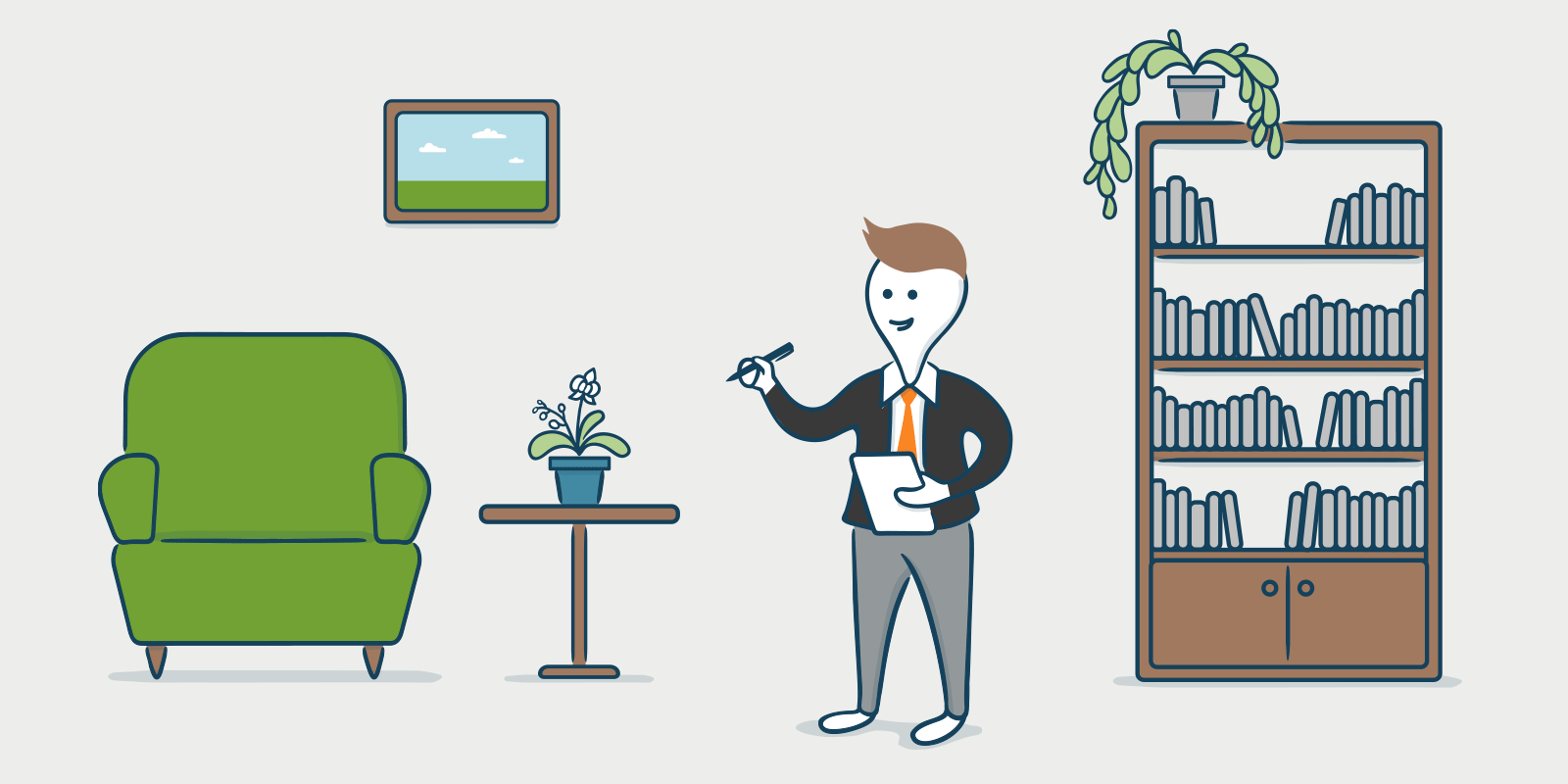
Using a property manager can seriously eat into your margins. London property managers typically charge 10-30% of the rental value. With these kinds of charges, you’ll be forced to raise the rental value making your property less competitive. It’s easy enough to manage properties yourself. Start by managing one property and then as your portfolio gets larger, you’ll be organised and able to scale the task. Check out our quick guide on how to manage properties.
Setting up and managing tenants
- Calculate the rental value by taking into consideration all your costs
- Advertising – Once you have taken some well-lit attractive photos, add some zingy copy and advertise on a site such as Zoopla, Rightmove, or Prime Location for free.
- Screen tenants- It’s important to screen tenants well as these are the guys who you are essentially trusting to pay your mortgage! So take the time to do some checks. Credit check tenants on a site such as Openrent for as little as £20. This service includes right to rent information, credit and CCJ checks, affordability, employment, and previous landlord references.
- Draw up a contract. You can check which tenancy agreement is the right one to use in our guide and get a copy.
- Moving in – Draw up an inventory of fixtures and fittings for tenants to sign. Explain any requirements and rules such as no pets and any maintenance. Collect the security deposit and first month’s rent. Great landlords might want to spend a few pounds on a Welcome to your New Home card and a bunch of flowers.
- Collecting rent – Set up a direct debit or standing order to collect the rent.
- Security deposit – You have 30 days to place the security deposit in a government-approved scheme. Send your tenants the details of where their money is being stored.
- During the tenancy – Make sure your tenants know how to contact you if there are any emergencies, issues or repairs. Respond to your tenants in a timely fashion and have reputable tradesmen to hand. You can find experienced tradesmen in your area on my.builder.com.
- Late and Overdue Rent – There’s no need to evict tenants for being a few days late with rent as eviction and finding new tenants is a costly business. Communicate and be approachable, but don’t let rent arrears get more than two months overdue.
- End of tenancy – Check the property over and return your tenant’s deposit within ten days of their request if all is in order. If there is damage beyond wear and tear you can make deductions. {LINK}
Managing properties
Aside from managing tenants you also need to maintain the property. Your tenants will let you know if there are any broken appliances such as the cooker or washing machine and any leaks or plumbing issues. You don’t need to pop around all the time and your tenants will be unlikely to appreciate it. However, you can make arrangements to check on your property once or twice a year. A good time to check on the property is when your gas engineer comes to inspect the boiler and appliances and issue the annual certificate. At the same time, you can make a general check of the property and make sure the roof and tiles are sound. If the property has a garden then you can make sure the tenants are maintaining it. Or alternatively, if you find it difficult to stay away from your investment you can do the gardening yourself. But once again respect your tenant’s privacy, otherwise, you’ll be looking for new tenants.Managing finances
When you’re running your own business, you need to keep on top of your finances. It’s simple enough to calculate your revenue which is your rental payments. If your tenants have fallen behind make sure you keep records of payments made and the arrears. You then need to offset this with your expenses, so that your books are in order for your self-assessment tax forms. If you have several properties, you may want to consider using a bookkeeper or accountant but the calculations are simple enough. Your expenses are:- Mortgage payments
- Insurance
- Health and Safety Certifications including PAT testing and Annual Gas certificate
- Repairs and Maintenance – Any payments made to tradesmen
- Bills – if you offer all-inclusive rentals then include gas, electricity, water, and wifi in your costs.
- Advertising costs
- Replacement fixtures and fittings- either due to damage or wear and tear.
Things to remember
You can save yourself a lot of money by managing property yourself. Follow this simple guide and to get more in-depth information check out the links in the article.- Manage your tenants – By screening them well, keep a check on rental payments and deal with repairs quickly.
- Manage your property – Check on your property when you maintain the garden or when you are getting the annual gas certificate.
- Manage your finances – Keep all your receipts and make sure you deduct them as costs before declaring your taxable income.



 Protect the environment. Reduce paper consumption and help save the trees as well as save money at the same time.
Protect the environment. Reduce paper consumption and help save the trees as well as save money at the same time. 
